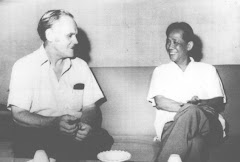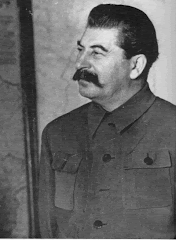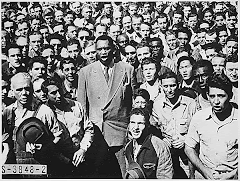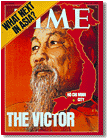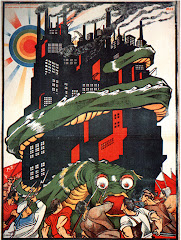Saturday, June 12, 2010
The facts of Marxist thought remain
The facts of Marxist thought remain
Monday 17 May 2010
Jean Turner
Two works vital for understanding the development of the human race and the origin of life on Earth were published in the mid-19th century - The Manifesto of the Communist Party by Karl Marx and Frederick Engels in 1848 and Charles Darwin's On the Origin of Species in 1859.
Both works were ground-breaking in that, by empirical methods, they produced a scientific analysis that refuted previous religious and philosophical concepts of the world in which we live.
They linked the dialectics of nature - representing the continual struggle of all species on Earth for survival and development - with historical and dialectical materialism, which sees the human race developing from primitive tribal societies, holding land in common ownership, to class societies in which the struggles of the oppressed against the oppressor, the exploited against the exploiter, result in new social organisations and formations. These have had a lasting effect on subsequent international events and universal education.
Because of the challenge to orthodox religion and politics which these works represent, they are still under attack from fundamentalists and the ruling capitalist class. But more than 160 years have passed without any serious refutation of the scientific facts which these publications contain.
In our epoch, the rise of a capitalist class owning advanced industrial machinery, manufacturing solely for profit and seeking control of resources, including human resources, throughout the world, has produced a form of slavery, wage slavery, which has displaced the peasantry and the craft guilds responsible for small scale production and led to the creation of a class of industrial workers - men, women and children - driven to the expanding cities by a lack of land and poverty.
Thus a new class, the proletariat, has been formed. To this new class Marx and Engels attribute the historical role of combining its forces to replace the capitalist system with a new form of society; one in which the mass of the people - workers by hand and brain, men and women - develop alternative means of production for use and not for profit, and create new forms of social organisation to suit their needs, including the necessity to preserve the ecology and sustainable balance of the Earth on which they, the majority of the human race, live. Marx and Engels called this communism.
The first attempt in the history of the world to form such a society took place in Russia in 1917, paradoxically a backward, semi-feudal country with only a small proletariat but a large peasantry demanding land.
Lenin understood the implications of the Communist Manifesto and combined with it a study of the new form of capitalism - finance-capital or "imperialism" - which produced nothing, but sought to control the world simply by the export of money.
His party, the Bolsheviks, took advantage of the chaos and misery brought about by the imperialist first world war and led the Russian people to overthrow both feudalism and capitalism in one fell swoop. Their slogan was "Bread, land and peace."
Despite every attempt to undermine the victory of the Bolsheviks, by isolation, starvation and direct intervention by 14 countries in support of the White counter-revolutionary forces, the first socialist state in the world was formed - the Union of Soviet Socialist Republics. Marx and Engels had envisaged that the most advanced proletariat would create this new society, which they called the dictatorship of the proletariat, but the lot fell to a vast country with only a small manufacturing base.
Isolated in a hostile world, Joseph Stalin, who became leader after the death of Lenin, pursued the line that socialism could be built in one country.
This was a new idea in the development of communist ideology. Socialism, which is public ownership of the means of production, distribution and exchange, was always seen as an interim phase before stateless, classless communism.
Pursuing the necessity to rapidly develop industry and agriculture - sometimes with harsh effects on individuals and communities - a powerful state arose which was able to withstand the onslaught of fascism from 1941 in a way that no other country in mainland Europe could.
The Soviet Union was largely responsible for the defeat of nazi Germany in World War II, but suffered terrible losses in terms of people and infrastructure. It rebuilt itself and took on a powerful role in world politics.
The demise in 1991 of this first socialist state - a bulwark against imperialism but driven to compete with it in the real world of armaments and capitalist consumerism - has affected peace and stability throughout the world.
However, the Soviet Union created an example for revolutionary forces everywhere, one which must be studied and understood, criticised and improved upon but respected and admired for its truly great achievements.
At this time, when all the peoples of the former Soviet Union and Europe have been celebrating the 65th anniversary of the defeat of the racist, sexist, genocidal ideology of fascism, we in Britain must examine our own weaknesses.
Lenin once famously wrote that "one step forward, two steps back" happens in the history of nations and in the development of parties. This is the nature of dialectics.
Juggling with arrangements among bourgeois parties as to who will rule the country, all of them solely representing the interests of international finance capital, will not solve the problems of the working class.
As was described in the Communist Manifesto, capitalism, at various times, alienates not only the working class, which consists of the majority of people, but also the petty bourgeoisie - the small business people and small farmers - and at times even sections of the bourgeoisie and state machine. This is the case in Britain now.
The danger lies in where this discontent will be led. It is the duty of Communists and all progressive people to ensure that - through socialist leadership and constant resistance to pressure to solve capitalism's problems by impoverishing and destroying the power of the working class and its organisations - this discontent does not lead to fascism, as it did in pre-war Germany.
Defeating a new generation of fascists is a political priority and the price of this is eternal vigilance.
Finally, we must end imperialism's mad rush to war to control the resources it needs for its continued existence. These wars are not supported by the majority of people and their connection with environmental damage to the fragile ecology of the planet is now being understood.
A nation which expends so much of its budget on weapons of mass destruction is not only causing untold suffering and destruction throughout the world, but is also destroying the social welfare on which its masses depend.
It is time to return to the vision of a better world as described in the Communist Manifesto and to charge the human race - a very recent late-comer to the amazing, beautiful Earth depicted by Darwin in The Origin of Species - with preserving it from mindless, careless destruction.
I should like to end with one thought. There are voices which wish to erase the name of Communism in favour of some alternative which is considered to be more palatable to the public.
To be a Communist is to carry a heavy responsibility. It is to constantly apply Marxist-Leninist theory to every current situation and to act as the heart, mind and advanced leader of the masses.
At the same time, one must never divorce oneself from grass roots and popular life in all its cultural diversity. Marx and Engels led a rich cultural life while remaining close to the trade unions and all political movements which represented the working class, the struggle for women's rights and national sovereignty.
They never divorced theory from practice, nor encouraged dogmatism. Communists in many places in the world are struggling, suffering and dying for their convictions. I salute them and wish them every success. They represent the best and highest aspirations of the human race for peace, justice, equality and a good and happy life.
Jean Turner is honorary secretary of the Society for Co-operation in Russian and Soviet Studies. This is an edited version of her speech at the Annual Karl Marx Oration at Highgate cemetery.
Great socialist’s birth commemorated in London
LONDON - Recently, on a rainy day in London, a group of people assembled at Highgate cemetery at Karl Marx' gravesite to commemorate the 192nd anniversary of his birth. It was also a commemoration of the 65th anniversary of the people's victory over fascism. Present were representatives and Communist Party members from around the world. Among them were Cuba, Cyprus, Greece, Iran, Iraq, Venezuela, UK and USA.
A number of years ago a BBC poll conducted in the UK found that a majority of Britons think that Marx was the "greatest philosopher" of all time.
Gerrard Sables, Secretary North Devon branch, CPB, and recent candidate for parliament in Britain told the World after the event, "For me Marx's message is still true. Workers of all countries unite! The first and most essential job we as communists have is persuading our fellow workers that we as workers do not have the same interests as big capitalists and that for a few people to insist on their 'right' to be fabulously wealthy is bad for humanity."
An excellent oration was delivered by Jean Turner, Honorary Secretary, Society for Cooperation in Russian and Soviet Studies. The text of the speech can be found here. [speech is above]
Turner maintains that Marx and Engels recognized the formation of the working class and " To this new class Marx and Engels attribute the historical role of combining its forces to replace the capitalist system with a new form of society; one in which the mass of the people... create new forms of social organization to suit their needs, including the necessity to preserve the ecology and sustainable balance of the earth on which they, the majority of the human race, live. Marx and Engels called this communism."
She talked of the danger of fascism and maintains, "Defeating a new generation of fascists is a political priority and the price of this is eternal vigilance."
She told the World, "We need to lift our spirits and see our goal, as Marx and Engels did. It is easy to get bogged down in the disappointments and setbacks of the present political situation."
Christine Lindey, Art Critic, Morning Star, commented about Ms. Turner's remarks, "For myself I was impressed by the clarity of her thinking and her use of jargon-free language with which to explain complex ideas. She took an overview of history and linked the achievements of the past to the current situation."
A number of wreaths were placed at Marx' headstone after the oration,. Representatives from many countries including Greece, Iran, Iraq, UK, and Venezuela placed wreaths and it was moving to watch them.
The commemoration was concluded by singing the Internationale in many different languages. Robert Griffiths, Secretary General, Communist Party Britain, encouraged the "cacophony" of different voices and languages to express the power of this great working-class song.
London was alive with activism and protests were everywhere drawing attention to the devastating wars. Banners calling for the return of the British troops alive were visible by the Parliament and other government buildings. I visited the pub where Lenin first met Stalin which is right next door to the Marx Memorial Library. The Marx Memorial Library houses the tiny room where Lenin worked while he lived in London. It was truly inspiring to be present in this city with such a great working-class history.
Alan L. Maki
58891 County Road 13
Warroad, Minnesota 56763
Phone: 218-386-2432
Cell Phone: 651-587-5541
E-mail: amaki000@centurytel.net
Please check out my blog: http://thepodunkblog.blogspot.com/







